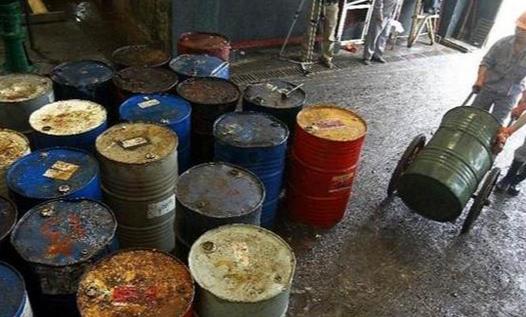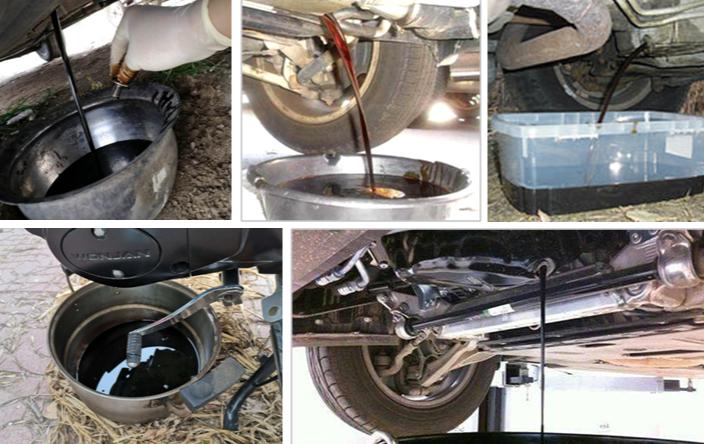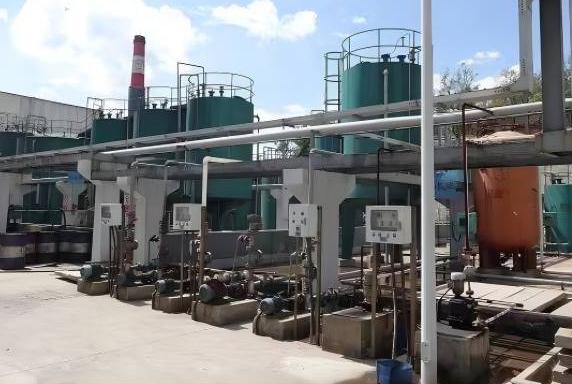Top Industries That Benefit from Waste Oil Recycling
In an age where sustainability is a key concern for businesses and consumers, waste oil recycling is gaining traction. Waste oil, which primarily comes from vehicles, machinery, and industrial processes, can cause considerable harm to the environment if not properly handled. However, recycling this oil can transform it into a useful resource, reducing reliance on raw materials and promoting circular economy principles.
This article explores the importance of waste oil recycling, the industries that benefit from it, and how businesses can implement effective recycling programs.
Why Waste Oil Recycling is Important

Waste oil recycling is crucial for several reasons.
- Firstly, it mitigates environmental pollution. Improper disposal of waste oil can lead to soil and water contamination, harming ecosystems and human health. Recycling helps prevent these risks by processing used oil into reusable products.
- Secondly, it conserves natural resources. The recycling process allows used oil to be refined and reintroduced into the market as base oils for lubricants and other products. This reduces the need for crude oil extraction, thereby conserving fossil fuels and minimizing greenhouse gas emissions associated with production.
- Finally, waste oil recycling offers economic advantages. By turning waste into a resource, companies can reduce disposal costs, generate revenue from recycled products, and enhance their sustainability profiles—an increasingly important factor for consumers and investors.
Top Industries That Benefit from Waste Oil Recycling
Waste oil recycling presents significant advantages across various sectors. Here are the four most important industries that benefit from this practice, detailed further:
Manufacturing and Industrial Sector
The manufacturing and industrial sectors generate significant amounts of waste oil through the maintenance of machinery and equipment. Recycling waste oil offers several advantages for these industries:
- Resource Recovery: By recycling waste oil, manufacturers can reclaim base oils that can be reused in machinery. This reduces dependence on virgin oil, leading to lower production costs and fostering a more sustainable supply chain.
- Operational Efficiency: Utilizing recycled oil can improve machinery performance, as high-quality recycled oils adhere to rigorous standards. This enhances operational efficiency by reducing downtime and maintenance expenses, ultimately boosting productivity.
- Waste Reduction: Establishing waste oil recycling programs allows manufacturing companies to dramatically decrease their hazardous waste output. This not only minimizes their environmental impact but also enhances waste management practices.
Automotive Industry

The automotive industry is one of the largest producers of waste oil, primarily generated from oil changes, maintenance, and repairs. Recycling used motor oil is essential for this sector for several reasons:
- Cost-Effective Solutions: Recycling waste oil allows automotive businesses to reclaim valuable resources for creating high-quality lubricants and engine oils. This process not only reduces the need to purchase new oils but also cuts down on disposal costs associated with used oil.
- Sustainability and Compliance: With environmental regulations becoming increasingly stringent, automotive companies must adhere to laws governing hazardous waste disposal. By implementing waste oil recycling practices, these businesses can ensure compliance, minimizing the risk of fines and enhancing their sustainability efforts.
- Building Consumer Trust: Today’s consumers are more concerned than ever about environmental impact. Automotive companies that actively engage in recycling initiatives can bolster their brand image, appealing to eco-conscious customers who prioritize sustainability in their purchasing decisions.
Energy Sector
The energy sector has increasingly turned to recycled waste oil as an alternative fuel source. This industry benefits in several key ways:
- Alternative Energy Source: Recycled waste oil can be converted into biodiesel or used directly as a fuel for industrial burners. This not only provides a cost-effective solution for energy generation but also reduces dependence on traditional fossil fuels.
- Environmental Impact: Utilizing recycled oil helps lower greenhouse gas emissions compared to burning virgin fuels. This aligns with global efforts to reduce carbon footprints and combat climate change, enhancing the sector’s commitment to sustainability.
- Cost Savings: By incorporating recycled oil into their operations, energy companies can lower fuel costs and improve their profit margins. Additionally, as energy prices fluctuate, having a reliable source of recycled oil can help stabilize expenses.
Marine Industry

The marine industry, including shipping and fishing, generates significant waste oil from vessel operations and maintenance. The benefits of recycling waste oil in this sector include:
- Waste Management Efficiency: Properly managing waste oil through recycling reduces the environmental impact of maritime operations. It helps prevent pollution from oil spills and illegal dumping, safeguarding marine ecosystems.
- Cost-Effective Lubricants: Recycling waste oil provides marine operators with high-quality lubricants specifically designed for the harsh conditions of marine environments. This not only enhances the performance and longevity of equipment but also reduces maintenance costs.
- Regulatory Compliance: The marine industry faces stringent environmental regulations regarding waste disposal. Implementing a waste oil recycling program ensures compliance with these regulations, avoiding potential fines and promoting a positive corporate image.
By recognizing and leveraging the benefits of waste oil recycling, these industries can enhance their operational efficiency, reduce costs, and contribute to a more sustainable future.
How Businesses Can Implement Waste Oil Recycling Programs
Implementing a waste oil recycling program can help businesses reduce costs, comply with environmental regulations, and enhance sustainability. Here are three critical steps for setting up an effective waste oil recycling program:
Assess Waste Oil Generation and Needs
Before implementing a waste oil recycling program, businesses should conduct a thorough assessment of their waste oil generation:
- Inventory Assessment: Start by evaluating the types and volumes of waste oil produced. This includes oil from machinery, vehicles, and other sources. Understanding the specifics of waste generation will help in determining the right recycling methods and partners.
- Identify Needs and Objectives: Define the goals of the recycling program. Is the primary aim to reduce disposal costs, comply with regulations, or improve sustainability efforts? Establishing clear objectives will guide decision-making and help measure the program’s success over time.
- Evaluate Current Practices: Review existing waste management practices to identify areas for improvement. This may involve analyzing current disposal methods, costs associated with waste handling, and compliance with environmental regulations.
Partner with Certified Recycling Facilities
Partnering with certified waste oil recycling facilities is essential for efficient and responsible oil recycling:
- Select Reliable Partners: Choose facilities that are fully licensed and compliant with local environmental regulations. Verify their recycling processes to ensure they maximize resource recovery and minimize environmental impact.
- Streamline Logistics: Work closely with the selected facility to set up an efficient logistics plan for waste oil collection and transportation. This may include arranging regular pickups and ensuring that proper storage and handling protocols are in place.
- Collaborate on Reporting: Develop a tracking and reporting system to monitor the volume of waste oil recycled. Regular communication with the recycling facility will ensure transparency and provide valuable insights into the program’s effectiveness.
Establish a Waste Oil Recycling Plant

For larger businesses or those generating significant volumes of waste oil, establishing a waste oil recycling plant can be a viable option:
- Cost-Benefit Analysis: Conduct a thorough cost-benefit analysis to determine if building a recycling plant is financially feasible. Consider initial investment costs, operational expenses, potential savings on waste disposal, and the revenue from selling recycled oil products.
- Regulatory Compliance: Ensure that the plant meets all regulatory requirements for waste processing and recycling. This includes obtaining the necessary permits and adhering to environmental standards to avoid legal issues.
- Technical Expertise: Invest in the right technology and personnel to operate the recycling plant effectively. This includes training staff on the recycling process, maintenance of equipment, and adherence to safety protocols.
Implement Employee Training and Awareness Programs
Educating employees on waste oil recycling is vital to the program’s success:
- Develop Targeted Training Modules: Design training programs that teach employees the importance of waste oil recycling, proper handling methods, and protocols for separating waste oil from other waste materials. Engaging employees in these practices fosters a culture of sustainability across the organization.
- Raise Awareness through Campaigns: Utilize posters, workshops, and team meetings to increase awareness of the environmental and economic advantages of recycling waste oil. Share success stories and emphasize the positive impact the program has on the company’s sustainability goals.
- Motivate Participation: Encourage a sense of ownership by actively involving employees in the recycling program. Consider incentive programs for teams that excel in waste oil management, further motivating staff to contribute meaningfully to the initiative.
By following these steps, businesses can successfully implement waste oil recycling programs that not only reduce environmental impacts but also enhance operational efficiency and foster a culture of sustainability.
Waste oil recycling offers a powerful solution for businesses across various industries to reduce environmental impact, lower operational costs, and enhance sustainability. As sustainability becomes a key priority for consumers, investors, and regulators, implementing a waste oil recycling program positions businesses as leaders in environmental responsibility, contributing to a cleaner, more sustainable future.







